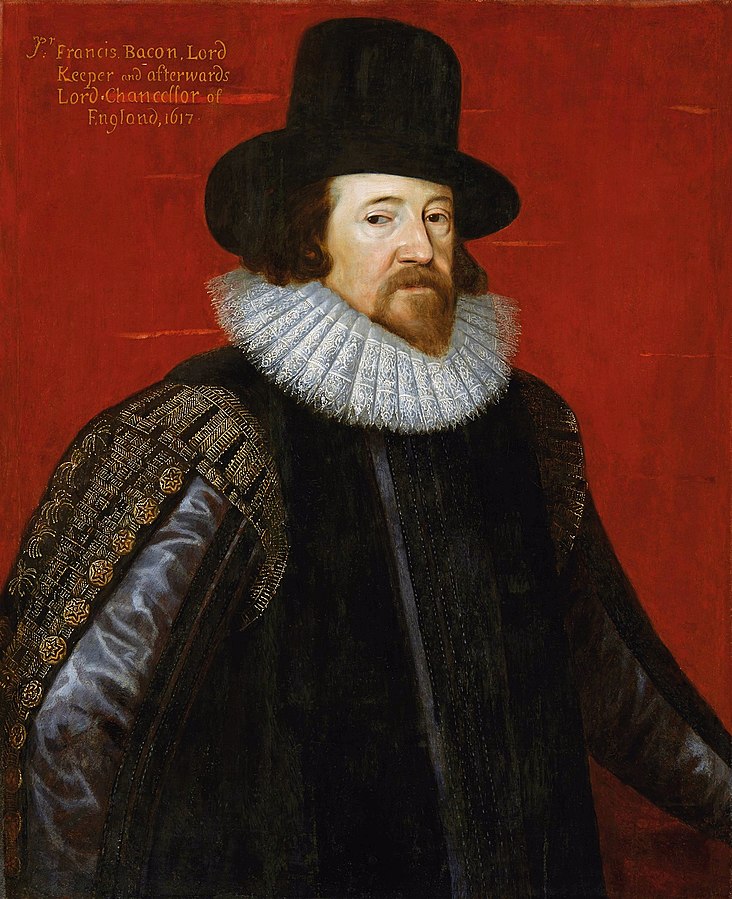“Knowledge itself is power”
Francis Bacon, Meditationes Sacrae

Francis Bacon was an early modern philosopher who was born in England in 1561 and died in 1626. He was a lawyer and politician in addition to being a philosopher, serving both in parliament and as Lord Chancellor of England. He wrote political, legal, ethical, and religious works of philosophy but is most well known for his works on natural scientific philosophy, in which he was an empiricist1. Bacon’s works were fundamental in formulating our modern scientific theory, including the scientific method, the way experiments and research are conducted, and the foundation for research institutes1. His legal and political works were also invaluable to the reform of English Common Law2 and the development of jurisprudence3. He’s also acquired the labels of the “Father of the Scientific Method” and the “Father of Experimental Philosophy” both with good reason. Despite not being as discussed as other philosophers of his era, it is undeniable the profound impact Francis Bacon has had not only on the world of philosophy but the entirety of our modern world.
1. Klein, Jürgen, and Guido Giglioni. “Francis Bacon.” In The Stanford Encyclopedia of Philosophy, edited by Edward N. Zalta, Fall 2020. Metaphysics Research Lab, Stanford University, 2020. https://plato.stanford.edu/archives/fall2020/entries/francis-bacon/.
2. Crowther, J. G. “Francis Bacon.” New Scientist, January 1961.3. Paul H. Kocher. “Francis Bacon on the Science of Jurisprudence.” Journal of the History of Ideas 18, no. 1 (1957). https://doi.org/10.2307/2707577.3.
3. Paul H. Kocher. “Francis Bacon on the Science of Jurisprudence.” Journal of the History of Ideas 18, no. 1 (1957). https://doi.org/10.2307/2707577.